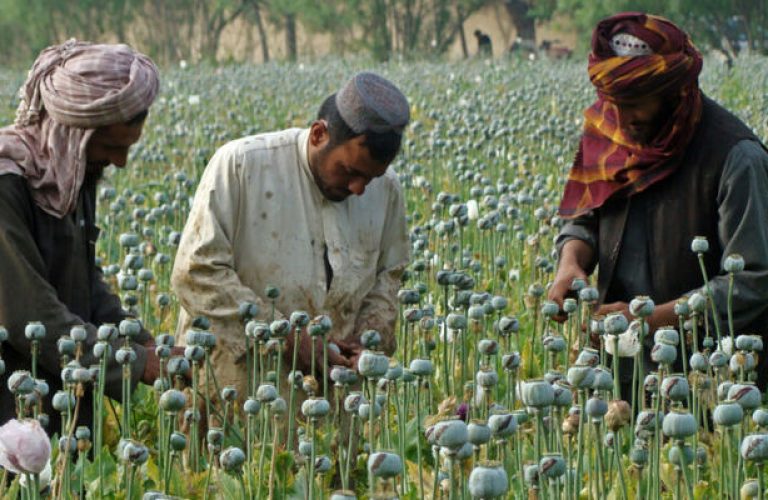RASC News Agency: The Washington Post has reported that climate change is posing significant challenges to the Taliban’s attempts to eradicate poppy cultivation in Afghanistan. According to the report, climate change has made it difficult for other agricultural crops in Afghanistan to thrive, leading farmers to make fewer efforts to replace poppies.
The Washington Post highlights one reason why Afghanistani farmers continue to grow poppies despite Taliban prohibitions: the resilience of this plant in harsh climatic conditions. The newspaper points out that climate change and severe weather conditions have rendered the cultivation of certain agricultural crops in parts of Afghanistan increasingly difficult, if not impossible.
The report acknowledges that although Afghanistani farmers initially switched to cultivating alternative crops following the Taliban’s ban on poppy cultivation, their three-year experience with these alternatives has led many to reconsider returning to poppy cultivation. The Washington Post warns: “If the Taliban cannot successfully shift away from poppy cultivation to other crops, the repercussions could extend beyond Afghanistan’s borders.”
The report further emphasizes that southern provinces of Afghanistan account for approximately two-thirds of the nation’s total poppy cultivation. Moreover, The Washington Post notes that while the average annual temperature in Afghanistan has risen by 3.2 degrees Fahrenheit over the past fifty years, doubling the global average increase, southern Afghanistan has experienced a temperature rise of 4.3 degrees Fahrenheit.
These observations come as the Taliban consistently claim to have completely eliminated drug cultivation and production under their control in Afghanistan. However, Iranian authorities, including the head of Iran’s Drug Control Headquarters, have previously stated that drug cultivation, production, and trafficking from Afghanistan have not decreased. They highlight that methamphetamine production and trafficking from Afghanistan to Iran have actually increased.
Locals in Afghanistan assert that the Taliban actively support and invest in poppy cultivation in southern regions. Conversely, resistance against poppy cultivation is strongest in northern Afghanistan, where confrontations involving weapons have occurred. It is noteworthy that conflicts have recently emerged between the people of Badakhshan and the Taliban over efforts to eradicate poppy cultivation.






